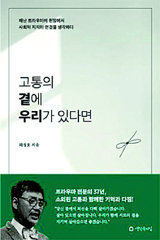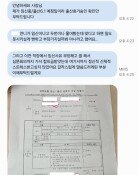How compassion can triumph over trauma
How compassion can triumph over trauma
Posted February. 04, 2023 08:00,
Updated February. 04, 2023 08:00

"The show goes on for the bereaved as well. I hope we can survive life together, standing side by side."
Korea suffered traumatic crisis after crisis from COVID-19, a global pandemic that haunted the whole world, and Itaewon Halloween crowd crush that left us traumatic just by watching the scene footage of the ongoing tragedy of Sewol Ferry.
The author of today's book, a Seoul St. Mary's Hospital professor and the founder of the Korean Society for Traumatic Stress Studies, takes readers through diverse social disasters and post-traumatic treatment cases to help them better understand how trauma works. He also points out how insensitive and heartless our society can be about trauma, arguing that the most critical thing is to stay by the victims' side so they can ask for help whenever they need it.
The word trauma originates from the ancient Greek meaning “perforating” damage or wound. We often refer to trauma when profoundly affected by painful emotions that almost "perforated" one's heart. If a person experiences a different life after a particular incident, that should instead be called trauma than stress because it means that the incident was overwhelming and life-changing.
One of the biggest trauma triggers is the "loss of feeling safe and stable." The cause of widespread COVID depression was that people increasingly felt anxious about getting infected with the virus and opted for social distancing and isolation. High levels of tension can leave trauma for individuals as well. One study found after tracing 63 patients with MERS-CoV infection for two years that those who felt chronically fatigued after getting infected thought more about committing suicide.
The pain caused by trauma can get worse if people and society do not show compassion. One case in point: people are criticizing those who were at Itaewon on that Halloween night when the tragic crowd crush happened. Online trolling against the bereaved of Sewol Ferry victims also exacerbates their emotional distress. The author noted that comments triggered by hate and bigotry are apparent violence that can be likened to searing the wound of those who are already deeply hurt.
Ji-Sun Choi aurinko@donga.com
Headline News
- N. Korea launches cyberattacks on S. Korea's defense companies
- Major university hospital professors consider a day off each week
- Italy suffers from fiscal deficits from ‘Super Bonus’ scheme
- Inter Milan secures 20th Serie A title, surpassing AC Milan
- Ruling and opposition prioritize spending amid tax revenue shortfalls







